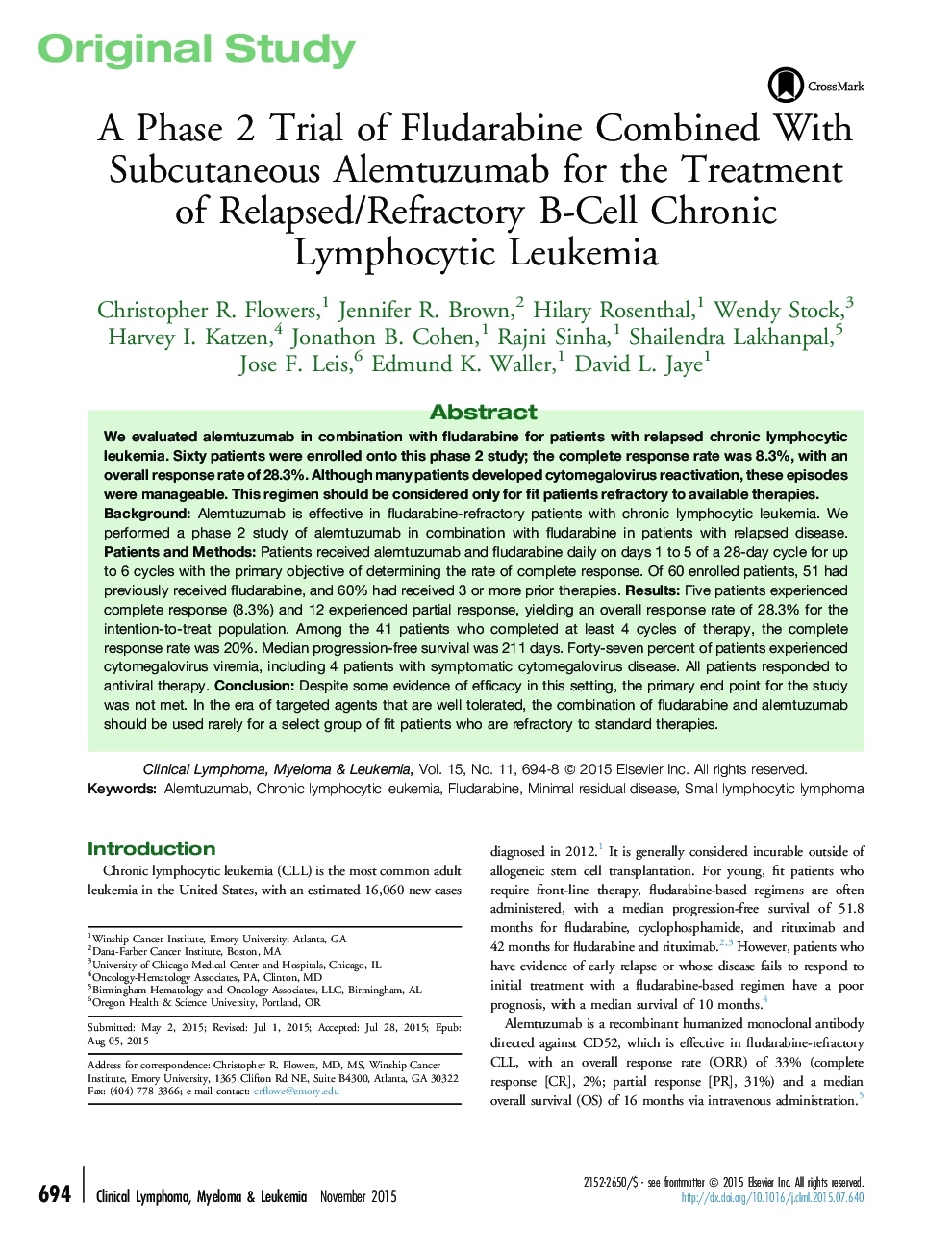| Article ID | Journal | Published Year | Pages | File Type |
|---|---|---|---|---|
| 2754368 | Clinical Lymphoma Myeloma and Leukemia | 2015 | 5 Pages |
BackgroundAlemtuzumab is effective in fludarabine-refractory patients with chronic lymphocytic leukemia. We performed a phase 2 study of alemtuzumab in combination with fludarabine in patients with relapsed disease.Patients and MethodsPatients received alemtuzumab and fludarabine daily on days 1 to 5 of a 28-day cycle for up to 6 cycles with the primary objective of determining the rate of complete response. Of 60 enrolled patients, 51 had previously received fludarabine, and 60% had received 3 or more prior therapies.ResultsFive patients experienced complete response (8.3%) and 12 experienced partial response, yielding an overall response rate of 28.3% for the intention-to-treat population. Among the 41 patients who completed at least 4 cycles of therapy, the complete response rate was 20%. Median progression-free survival was 211 days. Forty-seven percent of patients experienced cytomegalovirus viremia, including 4 patients with symptomatic cytomegalovirus disease. All patients responded to antiviral therapy.ConclusionDespite some evidence of efficacy in this setting, the primary end point for the study was not met. In the era of targeted agents that are well tolerated, the combination of fludarabine and alemtuzumab should be used rarely for a select group of fit patients who are refractory to standard therapies.
